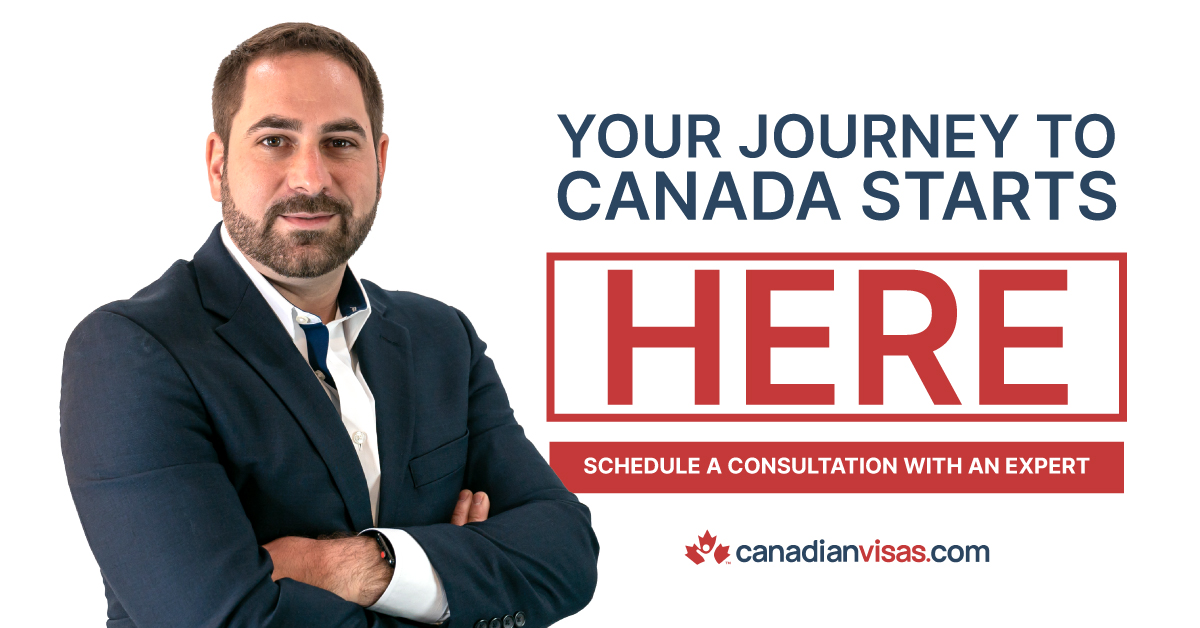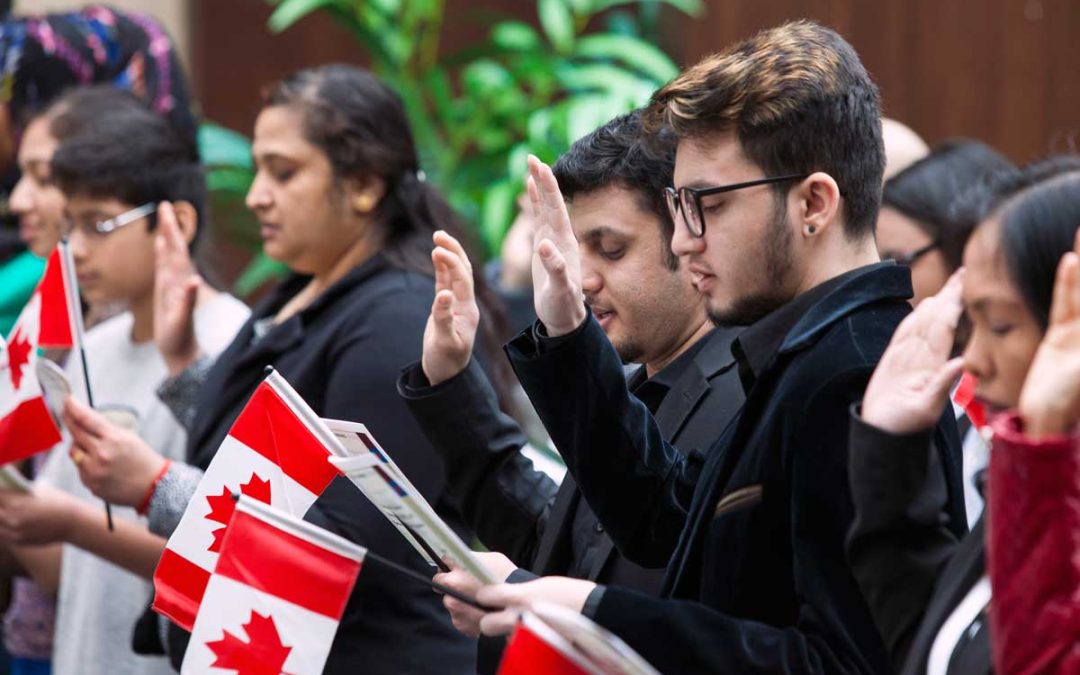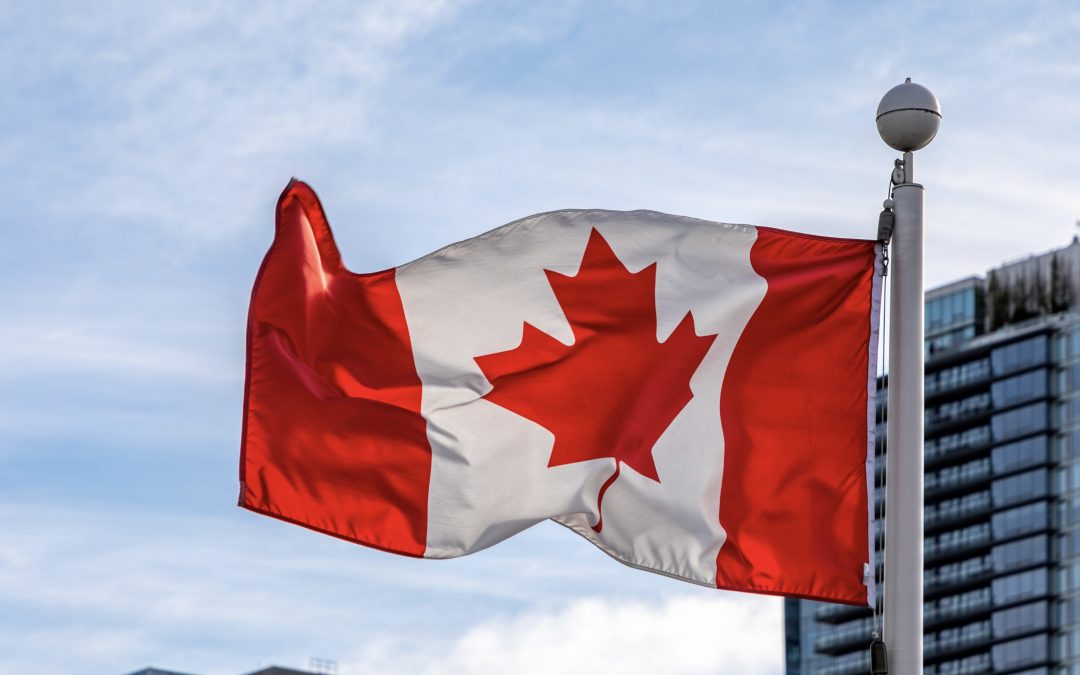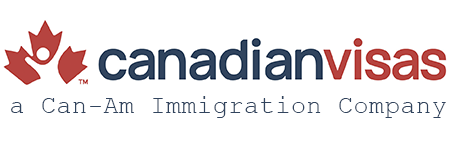
Jun 12, 2024 | Becoming a Sponsor, Blog, Immigrate to Canada, Immigration, Immigration Reform, In the News, New Laws
Recent trends suggest that Express Entry candidates meeting the eligibility requirements for category-based draws are more likely to receive an ITA even with a Comprehensive Ranking System (CRS) score below 500. CRS scores represent a point value assigned to each candidate based on human capital factors. These scores are crucial for Express Entry draws, as the cut-off score determines the minimum CRS score required for an ITA invitation in a particular draw.
Challenges of High CRS Cut-Off Scores in General Draws
Many immigration candidates have expressed concerns regarding high CRS cut-off scores in general Express Entry draws. In 2024, none of these draws have had a cut-off score under 524. For comparison, in 2023, 17 out of 25 non-category-based draws had cut-off scores lower than 518.
Benefits of Category-Based Draws
IRCC has conducted eight category-based draws so far in 2024. Every single one of these draws has had a significantly lower CRS cut-off score compared to general draws this year, with a minimum reduction of 33 points. The specific cut-off scores for these category-based draws have ranged from 336 to 491.
Eligibility for Category-Based Selection Draws
To be eligible for an ITA through a category-based draw, candidates must meet specific criteria that vary depending on the category. These categories include French language proficiency, healthcare professions, Science, Technology, Engineering, and Mathematics (STEM) professions, trades occupations, transport occupations, and agriculture and agri-food occupations. More details on these categories and their eligibility requirements can be found on the dedicated IRCC webpage.
Focus on French Language Proficiency
In 2024, IRCC has prioritized French language proficiency, anticipating it to be the leading category for ITAs issued through category-based draws this year (approximately 30% of total ITAs). To qualify under this category, candidates must have a minimum Canadian Language Benchmarks (CLB) score of 7 in all four language abilities (reading, writing, listening, and speaking) on the Niveaux de compétence linguistique canadiens (NCLC) test.
Focus on Specific Occupations
This year, IRCC has targeted immigration candidates with work experience in five key industries: healthcare, STEM, trades, transport, and agriculture and agri-food. For all these categories, a minimum of six months of continuous, full-time or equivalent part-time work experience in the past three years is required, obtained in either Canada or abroad. The specific National Occupation Classification (NOC) codes eligible for each category may vary.
Who Can Benefit Most?
Assuming they meet the eligibility requirements, foreign nationals with CRS scores below 500 (based on the lowest general draw cut-off score in 2024, which was 524) are most likely to benefit from category-based draws. This includes both candidates whose scores fall near 500 and those who wouldn’t qualify for an ITA otherwise, even with a CRS score increase.
Alternatives for Ineligible Candidates
For candidates aiming to improve their CRS scores for general draws without changing occupations, there are a few strategies:
- Language Skills: Maximizing language proficiency can significantly increase CRS points (up to 310 points when combined with other factors like education). Scoring above the minimum Canadian Language Benchmark (CLB) requirements can be beneficial. Additionally, proficiency in Canada’s second official language (French) can grant further points.
- Education: Depending on where your educational credentials were obtained (inside or outside Canada), education can contribute up to 250 CRS points. Having Educational Credential Assessments (ECAs) completed for foreign credentials or pursuing further education can improve your score.
- Work Experience: The level of your NOC and the duration of your work experience can influence your CRS score. Assessing your current work experience to see if it aligns with a skilled NOC and the total time spent working can help you gain more points. Gaining additional work experience can also be a strategy.
- Changing the Principal Applicant: In some cases, couples applying through Express Entry might benefit from reviewing their CRS scores. If a spouse or common-law partner has a higher CRS score than the initially selected principal applicant, switching the principal applicant on the Express Entry profile can improve the overall score and increase the chance of receiving an ITA. Alternatively, each spouse could submit a separate Express Entry profile.
Important Considerations for Category-Based Draws
While category-based draws offer an opportunity for some candidates with lower CRS scores, there are some crucial aspects to consider:
- Limited Number of ITAs per Draw: Compared to general Express Entry draws, category-based draws typically offer a smaller number of ITAs. This can increase competition within each specific category.
- Specificity of Categories: The categories for these draws target specific professions or language skills. Candidates who don’t perfectly align with these categories won’t be eligible, even with a lower CRS score.
- Fast-Moving Process: Express Entry draws, including category-based ones, happen regularly. Staying informed about upcoming draws and their requirements is essential to ensure you can submit an application when eligible.
Category-based selection draws present a valuable opportunity for specific Express Entry candidates with lower CRS scores, particularly those in high-demand professions or with strong French language skills. However, careful consideration of eligibility requirements, competition levels, and the fast-paced nature of Express Entry draws is crucial for maximizing your chances of success.

https://consultations.canadianvisas.com/canadianvisas-generalconsultation

Jun 7, 2024 | Becoming a Sponsor, Blog, Immigrate to Canada, Immigration, Immigration Reform, In the News, New Immigration Programs, New Laws, Skilled Workers, Work Permits, Working In Canada
The Canadian government, through Immigration, Refugees, and Citizenship Canada (IRCC), is offering a new pathway for highly skilled foreign workers to contribute to the country’s innovative businesses. Launched on April 15, 2024, the Innovation Stream Pilot is a two-year initiative designed to streamline the work permit process for select Canadian companies participating in the Global Hypergrowth Project (GHP).
Fast-Track Work Permits for High-Demand Skills
This pilot program exempts eligible employers from the requirement to conduct a Labour Market Impact Assessment (LMIA) for specific positions. LMIA is a process that verifies if hiring a foreign worker will negatively affect Canadian employment opportunities. The Innovation Stream Pilot prioritizes filling high-skill roles (as defined by National Occupational Classification or NOC levels 0, 1, 2, or 3) with qualified foreign talent.
Benefits for Workers and Families
This new Innovation Stream Pilot will allow certain Canadian companies to bring in highly skilled foreign workers on work permits without needing an LMIA (Labour Market Impact Assessment). Jobs in National Occupational Classification (NOC) categories 0, 1, 2, or 3(Training, Education, Experience, and Responsibilities) are considered high-skilled jobs. Furthermore, family members of these foreign workers will be eligible for an open work permit, allowing them to work for almost any employer in Canada. The Innovation Stream is scheduled to continue for two years, ending on March 22, 2026, unless there are any changes.
Program Duration and Eligibility
The Innovation Stream Pilot is currently scheduled to run until March 22, 2026. To be eligible, foreign workers (whether inside or outside Canada) must possess a valid job offer from a company participating in the GHP. The offered position must fall under an NOC 0, 1, 2, or 3 category and meet the prevailing wage standards for the specific region. Additionally, immigration officials will assess the applicant’s qualifications to ensure they align with the job requirements.
- Employers: Companies participating in the Global Hypergrowth Project are eligible to hire through the Innovation Stream.
- Workers: Foreign nationals with job offers in high-skilled occupations (National Occupational Classification categories 0, 1, 2, or 3) can apply from within or outside Canada. These categories typically require extensive education, training, or experience.
- Family Members: Spouses and dependents of approved workers will be eligible for open work permits, allowing them to work for any employer in Canada.
Companies Participating in the Global Hypergrowth Project
As of today, eight Canadian companies are authorized to hire foreign talent under the Innovation Stream Pilot without the LMIA requirement. These companies include:
- Ada Support Inc.
- AlayaCare
- CellCarta
- Clarius Mobile Health
- Clio
- Duchesnay Pharmaceutical Group (DPG)
- Lightspeed Commerce
- Vive Crop Protection
The Global Hypergrowth Project: Fostering Innovation
The GHP is a government initiative designed to accelerate the growth of Canadian businesses. It provides participating companies with customized support and resources tailored to their specific needs. This not only empowers these companies to thrive but also creates a dynamic environment that attracts top international talent.
Employer-Specific Work Permits Explained
An employer-specific work permit restricts the holder’s employment to the terms outlined in the permit document. These terms typically specify the employer’s name, duration of employment, and authorized work location.
The Innovation Stream Pilot represents a significant step by the Canadian government to attract skilled foreign talent and bolster the nation’s innovation ecosystem. This program offers promising opportunities for both Canadian businesses and qualified foreign workers seeking to contribute their expertise to Canada’s economic growth.

https://consultations.canadianvisas.com/canadianvisas-generalconsultation

May 28, 2024 | Becoming a Sponsor, Blog, Immigrate to Canada, Immigration, Immigration Reform, In the News, New Laws
Immigration, Refugees and Citizenship Canada (IRCC) issued invitations to potential sponsors for the 2024 Parents and Grandparents Program (PGP) on May 21st, 2024. This program facilitates family reunification by allowing Canadian citizens and permanent residents to sponsor their parents and grandparents for permanent residency in Canada.
Eligibility for the 2024 PGP Intake
For the 2024 intake, IRCC will only be considering individuals who submitted their interest to sponsor forms in 2020.This is the fourth consecutive year with this eligibility restriction. Invitations were sent via email on a random basis starting May 21st, 2024.
Steps to Take After Receiving an Invitation to Apply (ITA)
If you receive an ITA for the PGP, it is crucial to act promptly as the application window is typically limited to 60 days.Here’s a breakdown of the key steps involved:
-
Gather Required Documentation: Carefully review the document checklist provided within the ITA. This will likely include proof of identity, your relationship to the sponsored individual(s), financial documentation, medical examinations, police certificates, and any other supporting documents outlined in the ITA.
-
Complete Application Forms: Ensure all application forms are filled out accurately and comprehensively. Double-check all information before submission to minimize the risk of delays or errors.
-
Process Fee Payment: Submit the required processing fees for both the sponsorship application and the permanent residency application for the sponsored individual(s). Failure to settle these fees will result in application rejection.
-
Online Application Submission: Once you have gathered all necessary documents, completed the application forms, and paid the processing fees, submit your application electronically through the designated government portal within the allotted timeframe.
-
Application Processing: Upon submitting your application, you will receive a confirmation message. Processing times for PGP applications can vary. It is recommended to exercise patience and await further communication from IRCC.
-
Potential Additional Information Requests: During the processing stage, IRCC may request additional documentation or information. Respond promptly to any such requests to avoid processing delays.
-
Final Decision on Application: You will be notified of the final decision on your application. If approved, you will receive instructions on the next steps, such as submitting your passport for visa issuance. If your application is rejected, you may have the right to appeal depending on the reason for rejection.
Alternative Option: Super Visa Program
If you were not selected for the PGP this year, the Super Visa program can be a viable alternative. This program allows parents and grandparents to visit Canada for extended stays of up to five years at a time, with the possibility of a two-year extension. Unlike the PGP, applications for the Super Visa program can be submitted throughout the year. IRCC also targets a faster processing timeframe of approximately 112 days for Super Visa applications.
Seeking Professional Assistance
Considering the complexities involved in the PGP application process, it is highly recommended to seek professional guidance from an immigration lawyer or consultant. We can assist you with navigating the application process, ensuring all requirements are met, and maximizing your chances of a successful outcome.

May 23, 2024 | Blog, Immigrate to Canada, Immigration, Immigration Reform, In the News, New Laws
In a significant move to expand access to Canadian citizenship, Immigration Minister Marc Miller has introduced Bill C-71, a new bill that proposes sweeping changes to the country’s citizenship by descent rules. This legislation aims to address historical injustices and provide a more inclusive and equitable path to citizenship for many individuals and families.
Key Provisions of Bill C-71
At the heart of Bill C-71 lies the elimination of the first-generation limit, a longstanding restriction that prevented children born abroad to Canadian parents born outside Canada from automatically inheriting citizenship. This change will have a profound impact on countless families who have long awaited recognition of their deep connections to Canada.
Furthermore, Bill C-71 streamlines the process for adopted children born outside Canada to Canadian parents beyond the first generation to acquire citizenship. This direct grant of citizenship will eliminate unnecessary bureaucratic hurdles and provide greater certainty for these children and their families.
Recognizing the importance of maintaining a strong connection to Canada, Bill C-71 introduces a physical presence requirement for Canadian parents who have children abroad. After the legislation’s implementation, these parents will need to demonstrate a substantial connection to Canada (at least 1,095 days of physical presence) to pass on citizenship to their children.
Bill C-71 also takes significant steps to address the issue of “Lost Canadians,” individuals who lost or never acquired Canadian citizenship due to outdated provisions in previous citizenship laws. The bill grants automatic citizenship to these individuals and extends citizenship to their descendants, as well as those born abroad to a Canadian parent in subsequent generations before the Act is implemented.
Addressing the “Lost Canadians” Issue
The “Lost Canadians” refer to individuals who lost their Canadian citizenship due to a previous law requiring them to apply to retain it before turning 28. This outdated provision resulted in many individuals inadvertently losing their citizenship, creating a sense of injustice and disconnect from their Canadian heritage. Bill C-71 rectifies this by granting these individuals automatic citizenship, restoring their rightful status as Canadians.
Bill C-71 vs. Bill S-245
The introduction of Bill C-71 comes after delays in the passage of Bill S-245, a similar bill introduced in the Senate. While both bills aimed to address citizenship by descent issues, Bill C-71 offers a more comprehensive and forward-looking approach. It not only addresses the immediate concerns of “Lost Canadians” and their families but also establishes a clear and consistent framework for citizenship by descent for future generations.
Looking Forward
The proposed changes in Bill C-71 are expected to have a positive impact on a significant number of individuals and families. Once Parliament approves the bill, Immigration, Refugees and Citizenship Canada (IRCC) will provide further details and implement the new procedures. These changes will undoubtedly bring greater fairness and inclusivity to Canada’s citizenship system, reflecting the country’s diverse and interconnected population.
Additional Notes
- Bill C-71 is currently in the early stages of the legislative process. It will need to pass through both the House of Commons and the Senate before becoming law.
- IRCC has indicated that it will provide more information on the implementation of Bill C-71 once the legislation is passed.
- Individuals who may be affected by the changes in Bill C-71 are encouraged to stay informed and consult with an immigration lawyer or representative for guidance.

May 15, 2024 | Blog, Immigrate to Canada, Immigration, Immigration Reform, In the News, New Laws
Canadian employers seeking to hire temporary foreign workers (TFWs) through the Labour Market Impact Assessment (LMIA) program will be interested in a recent update from Employment and Social Development Canada (ESDC). On May 14, 2024, ESDC released revised processing times for LMIA applications across various streams.
The LMIA program is a crucial step for employers who wish to bring in foreign talent to fill specific job vacancies. By obtaining a positive LMIA, employers demonstrate to the government that they have made a good faith effort to recruit qualified Canadian citizens or permanent residents for the position, and that hiring a foreign worker will not negatively impact the domestic labor market.
What Changed?
The update from ESDC reflects the current average processing times for LMIA applications based on data from all processing centers. Here’s a breakdown of the changes for each stream:
- Global Talent Stream: Employers seeking to hire highly skilled or in-demand workers through the Global Talent Stream can expect a processing time of 7 business days, which remains unchanged.
- Agricultural Stream: Processing times for the Agricultural Stream, used to hire temporary foreign workers in agriculture and related occupations, have seen a slight increase to 13 business days (up from 10 days).
- Seasonal Agricultural Worker Program: Employers bringing in seasonal agricultural workers will see a more significant increase, with processing times moving to 10 business days (up from 7 days).
- Permanent Residence Stream: The Permanent Residence Stream, which supports temporary foreign workers seeking permanent residency in Canada, has seen the longest delay increase, with processing times reaching 80 business days (up from 79 days).
- High-wage Stream: Employers offering high-wage positions can expect some welcome news. Processing times for the High-wage Stream have decreased to 43 business days (down from 51 days).
- Low-wage Stream: The Low-wage Stream has also seen a processing time reduction, with applications now taking an average of 46 business days (down from 55 days).
Important Considerations
It’s important to remember that these are average processing times. Individual applications may take longer or shorter depending on specific circumstances. Here are some factors that can influence processing timelines:
- Completeness of application: Ensure your application includes all required documentation and is filled out accurately to avoid delays.
- Complexity of the case: More complex cases, such as those involving unique job requirements or foreign worker recruitment efforts, may take longer to process.
- Work permit type: Processing times can vary depending on the type of work permit being sought for the foreign worker (e.g., open work permit vs. employer-specific work permit).
Planning Ahead is Key
Given the processing time variations, employers seeking to hire temporary foreign workers are advised to plan ahead.Here are some tips:
- Start the LMIA application process early: Don’t wait until the last minute to submit your application, especially if you’re utilizing the Seasonal Agricultural Worker Program or Permanent Residence Stream with their longer processing times.
- Carefully review application requirements: Familiarize yourself with the specific requirements for your chosen LMIA stream and ensure you have all necessary documentation readily available.
- Seek professional guidance: Consider consulting with an immigration lawyer or consultant specializing in LMIA applications for assistance with the process.
The recent update from ESDC provides valuable insights for Canadian employers navigating the LMIA program. By understanding the current processing times and taking proactive steps, employers can ensure a smoother experience when hiring foreign workers to fill their labor needs.

May 15, 2024 | Blog, Immigrate to Canada, Immigration, Immigration Reform, In the News, New Laws
British Columbia is actively seeking talented business leaders to establish themselves in the province through the British Columbia Provincial Nominee Program (BCPNP). On May 14, 2024, the BCPNP conducted new invitation rounds for its Entrepreneur Stream, offering a pathway to Canadian permanent residence for experienced business individuals.
Entrepreneur Stream: A Gateway to Opportunity
The Entrepreneur Stream is a two-step immigration program designed to attract experienced entrepreneurs who can contribute to British Columbia’s economic growth. Successful applicants first receive a work permit to establish or acquire a business in the province. Once their business is operational and meets specific criteria, they can apply for permanent residence in Canada.
There are two categories within the Entrepreneur Stream:
- Base Category: Open to experienced entrepreneurs who wish to establish a new business venture or purchase an existing one in British Columbia.
- Entrepreneur Immigration – Regional Pilot: This category caters to entrepreneurs who are referred by a participating community within British Columbia. These communities are typically looking for businesses that align with their specific economic development goals.
Recent Draw Results
The latest draws, conducted on May 14, 2024, saw invitations issued to a limited number of candidates in both categories. Here’s a breakdown of the results:
- Base Category: Five candidates received invitations, with the minimum cut-off score being 116 points. This is a slight increase compared to the previous draw.
- Entrepreneur Immigration – Regional Pilot: Up to five candidates were invited, with a minimum score requirement of 113 points.
It’s important to note that the maximum score achievable under the Entrepreneur Stream is 200 points. A higher score increases your chances of receiving an invitation to apply.
Eligibility Requirements: To Qualify for the BCPNP Entrepreneur Stream
To be considered for the BCPNP Entrepreneur Stream, you’ll need to meet several key requirements. Here’s a closer look:
- Business Experience: A minimum of two to four years of experience managing or owning a business that generated a certain level of annual revenue. Specific requirements vary depending on the category you’re applying under.
- Investment Capital: Possession of sufficient investment funds to establish or purchase a business in British Columbia. The minimum investment amount varies but typically ranges from $200,000 CAD to $400,000 CAD.
- Language Skills: Demonstrated proficiency in English or French through an approved language test.
- Business Concept: Submission of a well-developed business plan outlining your proposed business venture in British Columbia. This plan should demonstrate the viability of your business, its potential for job creation, and its contribution to the provincial economy.
- Net Worth: Meeting a minimum net worth threshold to ensure you have the financial resources to support yourself and your business during the initial establishment phase.
BCPNP’s Commitment to Entrepreneurship
British Columbia recognizes the valuable contribution that entrepreneurs make to the province’s economic prosperity and job creation. The BCPNP Entrepreneur Stream is a testament to this commitment, offering a pathway for experienced business leaders to build successful businesses and make a lasting impact on the province.
While 2023 saw invitations extended to 89 entrepreneurs, 2024 is on track for a more selective approach, with invitations issued to only 30 business candidates through the Entrepreneur draws so far. This emphasizes the importance of a strong application package and a well-defined business plan to stand out from the competition.
Considering the BCPNP Entrepreneur Stream?
If you’re an experienced entrepreneur with a vision for establishing a successful business in British Columbia, the BCPNP Entrepreneur Stream could be your gateway to Canadian permanent residence. Carefully review the eligibility requirements, develop a compelling business plan, and seek guidance from immigration professionals to ensure your application is competitive. By taking these steps, you can increase your chances of receiving an invitation to apply and take the first step towards building your dream business in Canada.








 Useful Resources for Canada
Useful Resources for Canada
 Useful Resources for U.S.
Useful Resources for U.S.
 Our Local Immigration Services
Our Local Immigration Services